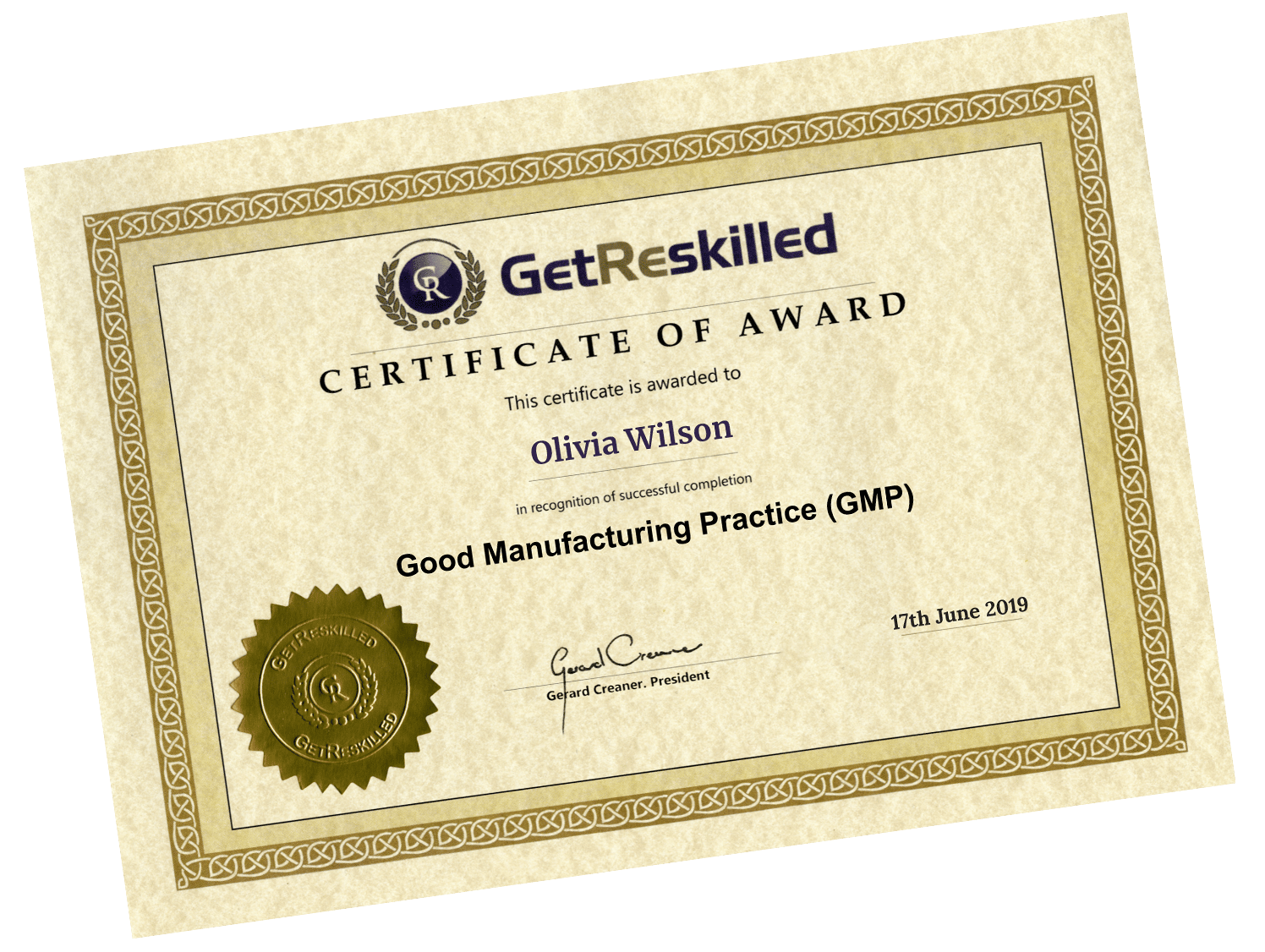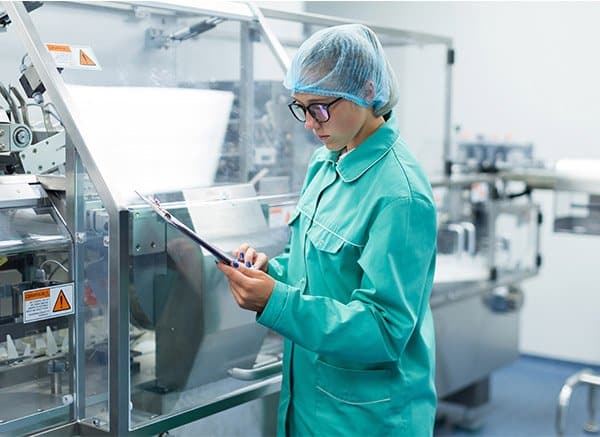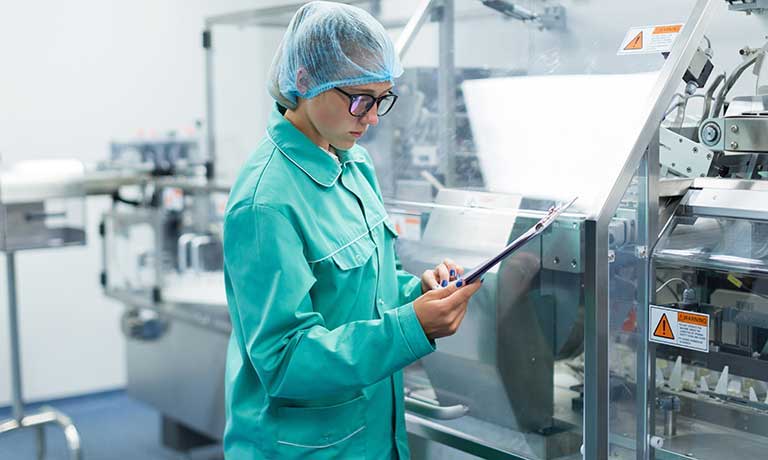This is proper course, NOT a sit through a lecture, guess the answer to a quiz type programme.
It comes with:
- Minimum entry requirements
- Weekly coursework
- Deadlines
- Workshops
- An end-of-module assignment that will be run through an anti-plagiarism checker and checked for the use of ChatGPT and other LLMs
- Feedback on your completed assignment from a chemical engineer with over 30 years experience
Write a 1,500 word technical report on GMPs
As part of your End of Module Assignment, you will write a 1,200-word report on the GMPs required to consistently manufacture safe medicines, vaccines and medical devices for patients. It will include:
- The key regulatory requirements of a quality management system
- The cleaning validation sequence and how to determine cleanliness levels
- The documentation of a complete risk management process in terms of identifying risk, analyzing risk, evaluating risk and controlling risk.
- The typical equipment and process stages used in the manufacture of active pharmaceutical ingredients
- The generation, storage and distribution of pharmacopoeia-grade Purified Water (PUW).
- The common cleanroom configuration and airflow direction that governs personnel and material flows in a biopharmaceutical manufacturing environment
Our Chemical Engineers will review your report and give you written feedback.
This GMP Training Course is right for you if;
- You want to learn how safe medicines and medical devices are made in a regulated Good Manufacturing Practice GMP environment.
- You work in academia or a research laboratory and need to work with professionals in the pharmaceutical and med device manufacturing sector.
- You have to train your team on how safe medicines and medical devices are made in a regulated GMP environment as part of a GMP compliance, GMP refresher or GMP induction training programme.
This Course in NOT right for you if you want to retrain for a job in pharma manufacturing
- If you want to retrain for an entry-level job in Pharmaceutical Manufacturing, check out our Conversion Course into Pharma Manufacturing.
- If you have a PhD, Masters, or Degree in Laboratory/Science, Biochemistry, Chemistry, Microbiology, or BioTech, then take our Conversion Course into Pharma for Scientists
Minimum Entry Requirements
- You have one of the following qualifications or work in any of the following:
- PhD, Masters, Degree or Diploma in Biochemistry, Microbiology, Molecular Biology, Laboratory/Science
- Management or Engineering Consultant
- Engineers or Technicians
- Quality Control or Quality Assurance
- Frontend/Backend/Full Stack or Enterprise Software Developer
- Logistics – Supply Chain Managers, Procurement
- Packaging and labelling industry
- HR/Recruitment Specialists focused on life sciences, pharmaceutical, biotech or medical device industry
Enroll in this course to learn…
- Introduction – to pharmaceutical, (bio)pharmaceutical manufacturing in a GMP (Good Manufacturing Practice) regulated environment, quality systems, regulation and validation
- Industry regulations and guidelines for GMPs from various regulatory authorities – including, FDA GMPs for the United States, EMA GMPs for the European Union, ICH, and PICs GMP regulation, GMP requirements and GMP principles
- FDA medical device rules – medical device regulations & guidelines
- GMP Guidelines vs ISO 9001:2015 – what’s the difference and why we use both
- Process validation and documentation – design and verification of manufacturing systems and good documentation practices
- Key manufacturing technologies – such as organic chemical synthesis, biopharmaceutical manufacturing, tablet manufacturing and aseptic & sterile manufacturing
- Supporting technologies – such as purified water generation, storage & distribution, clean steam, water systems, water for injection, storage and distribution
- Introduction to Quality Risk Management (QRM) – and the importance of risk management and the basic steps involved in its application
- Working in a cleanroom environment – layout, classification, gowning and monitoring
- Professional Writing Skills Program – This will guide you through the assignment writing process and equip you with the written communication skills you need for working in the industry
You’ll produce a number of deliverables throughout the course including…
- Complete the following 2 Quality Risk Management Tool workshops where you will learn to use worst-case scenario planning to figure out what could go wrong in the manufacturing process and come up with steps to mitigate those risks.
- Fault Tree Analysis (FTA)
- Failure Mode Effect Analysis (FMEA)
- Complete four-question booklets (one for every week’s worth of content) which will summarise what you have learnt for the week and ensure you retain and understand the information.
End of Module Assignment
- Complete a 1,500 word technical report on the GMPs that are required to consistently manufacture safe medicines, vaccines, and medical devices for patients.
And take the following skills and knowledge back to work…
- You’ll have a foundation in how safe medicines and medical devices are made in a regulated GMP environment.
- You’ll be able to participate in root cause analysis projects.
- You’ll have enough technical knowledge and understanding of the quality culture necessary to work in this environment.
-
You’ll have the written communications skills to properly write reports and reference and cite source material in a manner that is consistent with the professional norms of this industry.
- You’ll be able to work with professionals in this sector without feeling lost or intimidated by the specialised terms and frameworks used in this sector.
Your 6-Week Class Schedule
Hear From People Who’ve Taken This Course

John Ryan
“The course content material is concise and interesting”
“The professionalism and passion of the lecturers comes across in the tutorials which gives the student confidence and encouragement to keep on top of the course. The course content material is concise and interesting. The timing of the release of the lessons is perfect, the student moves at a comfortable pace, one step at a time.”

Ronan Balfe
“I would have no hesitation in recommending these courses”
“Studying online gives you the time to do the course in your own time yet with assignment deadlines this made you disciplined to meet the deadlines set. I would have no hesitation in recommending these courses to anyone wishing to gain an education in the pharmaceutical sector.”

Edel Harkins
“Highly recommended to anyone who has been out of the industry for a period of time”
“I would highly recommend anyone in my situation who has been out of the industry for a period of time to do these courses. They have contributed to my new found confidence in my existing and new qualifications, my improved interview skills and my new job!”
Delivered by a Practicing Industry Expert
Dr. Joe Brady
Full-Time Validation Lead
Lecturer, Technological University Dublin, Ireland
Senior Associate, GetReskilled
Dr. Joe Brady is a full-time practicing Validation Lead and an assistant lecturer with Technological University Dublin (TU Dublin), in the School of Chemical and Pharmaceutical Sciences. Joe is a certified trainer and highly experienced in competency-based training. He designs and prepares educational modules and full academic courses ranging from MSc, MEngSc. BSc, to Certificate level, for a range of academic institution.
He is also a supervisor for MSc/MEngSc and PhD theses. Joe has over twenty years of project experience in the pharmaceutical, biopharmaceutical and medical device industries in Ireland, Singapore, China, The Netherlands, France and the USA.
How We Deliver Our Online Courses without ZOOM Classes
With every GetReskilled ONLINE program;
- Centralized Platform: We use one platform (Moodle) where you can log into your classroom anytime. Each week, you’ll watch videos and complete quizzes, tests, interactive activities, and projects. The course materials are available 24/7, so you don’t have to be online at a specific time. There are No Zoom Classes. Study anywhere, anytime, such as after the kids are in bed or on the weekend.
- Flexible Schedule: Your working schedule may be unpredictable, so we offer flexible delivery. You can slow down, speed up, or pause the program as needed.
- Progress Checks: We release one week’s worth of material at a time and manually check your activity logs at the end of each week to ensure you are keeping up with your work.
- Dedicated Course Leader: Your course leader will:
- Help you create a weekly study plan
- Answer any questions
- Check your progress every Monday
- Follow up regularly to support you until the end of the course.
This all helps us to spot any potential issues early and helps you completely finish the program.
Earn a Certificate of Award in “Good Manufacturing Practices (GMPs)”
Earn by successfully completing an end-of-module written technical report on cGMPS and passing all assessments.
Add details of your certificate to your CV/Resume or your LinkedIn profile.

Price
$699/month
For 2 months
Or $1,399 in Advance
Enroll a Team of 5 People
$5,596
Save $1,399
6 Day Fast Track Option
$2,000
- Complete this program in 6 days.
- Your course leader will check your progress every morning and follow up with you to keep you on schedule.
- We can start you within 24 working hours upon receipt of payment.
- Contact us for details.
€699/month
For 2 months
Or €1,399 in Advance
Enroll a Team of 5 People
€5,596
Save €1,399
6 Day Fast Track Option
€2,000
- Complete this program in 6 days.
- Your course leader will check your progress every morning and follow up with you to keep you on schedule.
- We can start you within 24 working hours upon receipt of payment.
- Contact us for details.
£699/month
For 2 months
Or £1,399 in Advance
Enroll a Team of 5 People
£5,596
Save £1,399
6 Day Fast Track Option
£2,000
- Complete this program in 6 days.
- Your course leader will check your progress every morning and follow up with you to keep you on schedule.
- We can start you within 24 working hours upon receipt of payment.
- Contact us for details.
Price
€699/month
For 2 months
Or €1,399 in Advance
Enroll a Team of 5 People
€5,596
Save €1,399
6 Day Fast Track Option
€2,000
- Complete this program in 6 days.
- Your course leader will check your progress every morning and follow up with you to keep you on schedule.
- We can start you within 24 working hours upon receipt of payment.
- Contact us for details.
$699/month
For 2 months
Or $1,399 in Advance
Enroll a Team of 5 People
$5,596
Save $1,399
6 Day Fast Track Option
$2,000
- Complete this program in 6 days.
- Your course leader will check your progress every morning and follow up with you to keep you on schedule.
- We can start you within 24 working hours upon receipt of payment.
- Contact us for details.
£699/month
For 2 months
Or £1,399 in Advance
Enroll a Team of 5 People
£5,596
Save £1,399
6 Day Fast Track Option
£2,000
- Complete this program in 6 days.
- Your course leader will check your progress every morning and follow up with you to keep you on schedule.
- We can start you within 24 working hours upon receipt of payment.
- Contact us for details.
Price
£699/month
For 2 months
Or £1,399 in Advance
Enroll a Team of 5 People
£5,596
Save £1,399
6 Day Fast Track Option
£2,000
- Complete this program in 6 days.
- Your course leader will check your progress every morning and follow up with you to keep you on schedule.
- We can start you within 24 working hours upon receipt of payment.
- Contact us for details.
€699/month
For 2 months
Or €1,399 in Advance
Enroll a Team of 5 People
€5,596
Save €1,399
6 Day Fast Track Option
€2,000
- Complete this program in 6 days.
- Your course leader will check your progress every morning and follow up with you to keep you on schedule.
- We can start you within 24 working hours upon receipt of payment.
- Contact us for details.
$699/month
For 2 months
Or $1,399 in Advance
Enroll a Team of 5 People
$5,596
Save $1,399
6 Day Fast Track Option
$2,000
- Complete this program in 6 days.
- Your course leader will check your progress every morning and follow up with you to keep you on schedule.
- We can start you within 24 working hours upon receipt of payment.
- Contact us for details.
Application Deadline: Wednesday 23rd July
Program Starts: 30th July
Click below to start your application
Contact Details For This Course
Geraldine Creaner
Got More Questions?

Hi, I’m Donagh Fitzgerald. Chat with me live anytime – just click the blue chat bubble in the bottom-right corner of the page.
I’m online Monday to Friday during working hours (Irish/UK time).
If I’m away from my desk, leave a message and I’ll get back to you as soon as I can.
Or you can fill out the form below and we’ll reply within one working day.


